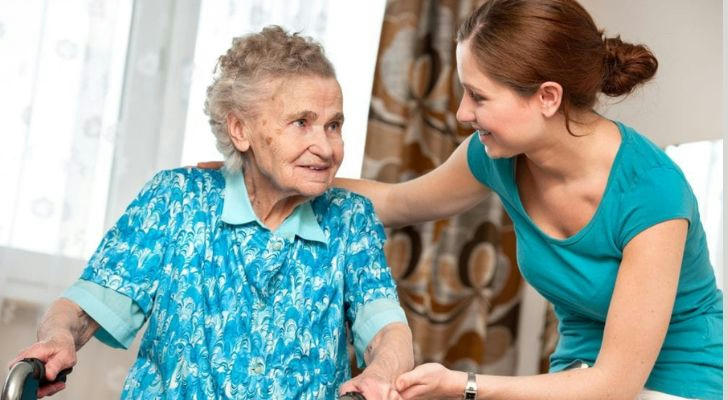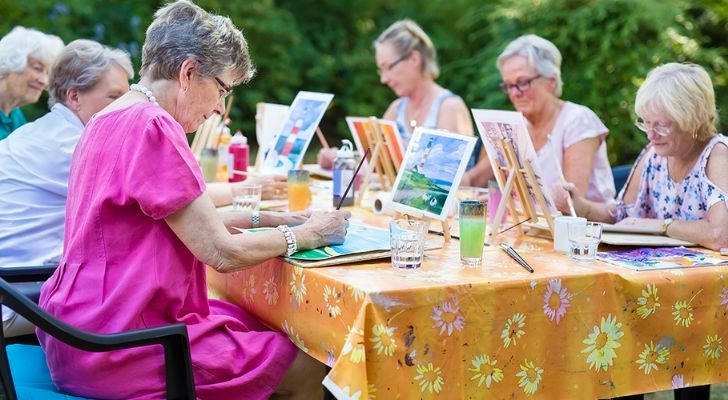The Importance of Elderly Care: How to Improve the Quality of Life for Seniors
As people live longer, taking care of seniors is becoming more important. Good elderly care helps them stay healthy, feel happy, and stay connected with others. However, many families and communities struggle to provide proper care. This article explains why elderly care is so important and offers simple ways to improve the lives of older adults.

1. Why Elderly Care Matters
Keeping the Body HealthyAs people age, their bodies slow down, and they may develop health problems like high blood pressure, diabetes, or heart disease. The Centers for Disease Control and Prevention (CDC) says that 80% of older adults in the U.S. have at least one chronic illness, and half have two or more. Regular medical care and healthy habits can help seniors manage their conditions and feel better. A 2024 study published in The Journal of Aging and Health found that seniors who receive regular medical checkups are 30% more likely to maintain mobility and independence compared to those who do not.
Supporting Mental HealthMany seniors feel lonely, anxious, or even depressed, especially after retirement. The National Institute on Aging (NIA) found that seniors who feel isolated have a 50% higher chance of developing dementia. A study from Harvard Medical School also suggests that maintaining social connections can reduce depression symptoms in older adults by up to 40%.
Encouraging Social ConnectionsMany older adults don’t socialize as much because of physical limitations or busy family members. However, staying socially active helps them feel valued and prevents loneliness. Seniors should be encouraged to join clubs, participate in group activities, and stay in touch with loved ones. According to a 2024 report from the American Psychological Association, older adults who participate in at least two social activities per week report a 25% increase in life satisfaction.

2. How to Improve the Quality of Life for Seniors
Ensure Proper Medical CareSeniors need regular health checkups to monitor their conditions. Family members and caregivers should also learn how to manage medications and respond to medical emergencies.
Provide Nutritious MealsEating the right foods is essential for staying strong and healthy. The World Health Organization (WHO) suggests that seniors need at least 1,200 mg of calcium daily to keep their bones strong. They should eat lean protein, fiber-rich foods, and plenty of vitamins while avoiding too much salt and sugar. A study from the American Journal of Clinical Nutrition found that older adults who follow a Mediterranean diet rich in fruits, vegetables, and healthy fats have a 35% lower risk of heart disease.
Encourage Physical ActivityLight exercise can help seniors maintain strength, balance, and flexibility. The American Heart Association says that 150 minutes of moderate exercise per week can lower the risk of heart disease. Walking, stretching, yoga, or tai chi are great ways for seniors to stay active without too much strain. A 2021 study from the British Journal of Sports Medicine showed that older adults who exercise regularly reduce their risk of falls by 23%.
Offer Emotional SupportSeniors need emotional care just as much as physical care. Families should talk to them often, encourage them to express their feelings, and help them find hobbies they enjoy, such as reading, painting, or gardening.
Build a Supportive CommunitySeniors thrive when they feel part of a community. Local organizations can provide social opportunities like senior centers, book clubs, and volunteer programs to keep them active and involved.

3. A Real-Life Example
Mary Johnson, an 82-year-old widow from Chicago, felt lonely and unwell after her husband passed away. She rarely left home and struggled with high blood pressure. Her daughter encouraged her to join a local senior center, where she started doing chair yoga and joined a weekly book club. Over time, Mary’s health improved, her blood pressure stabilized, and she made new friends. This shows how social engagement and physical activity can greatly improve an elderly person's quality of life.
4. Conclusion
Elderly care is not just about medical treatment. It’s about making sure seniors feel loved, stay healthy, and continue to enjoy life. By providing good healthcare, nutritious food, regular exercise, emotional support, and social opportunities, we can help seniors live longer and happier lives. Whether you are a family member, a caregiver, or part of a community, you can make a difference in an elderly person’s life. Small efforts can bring big changes and ensure our seniors live with dignity and joy.
